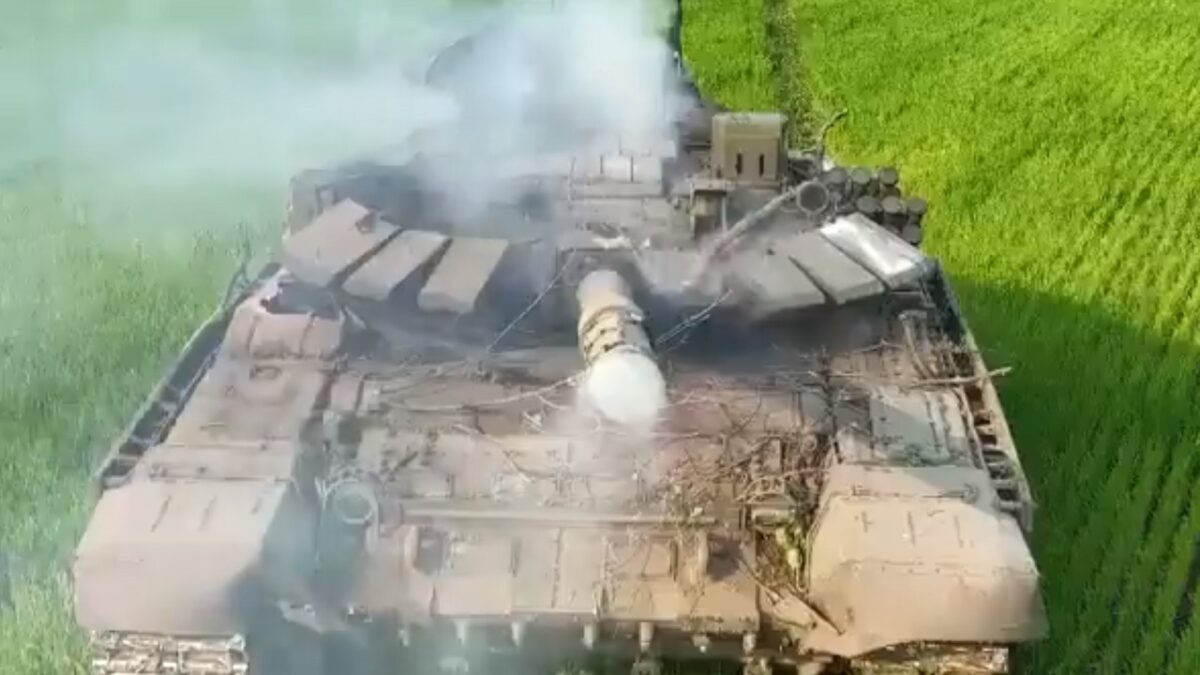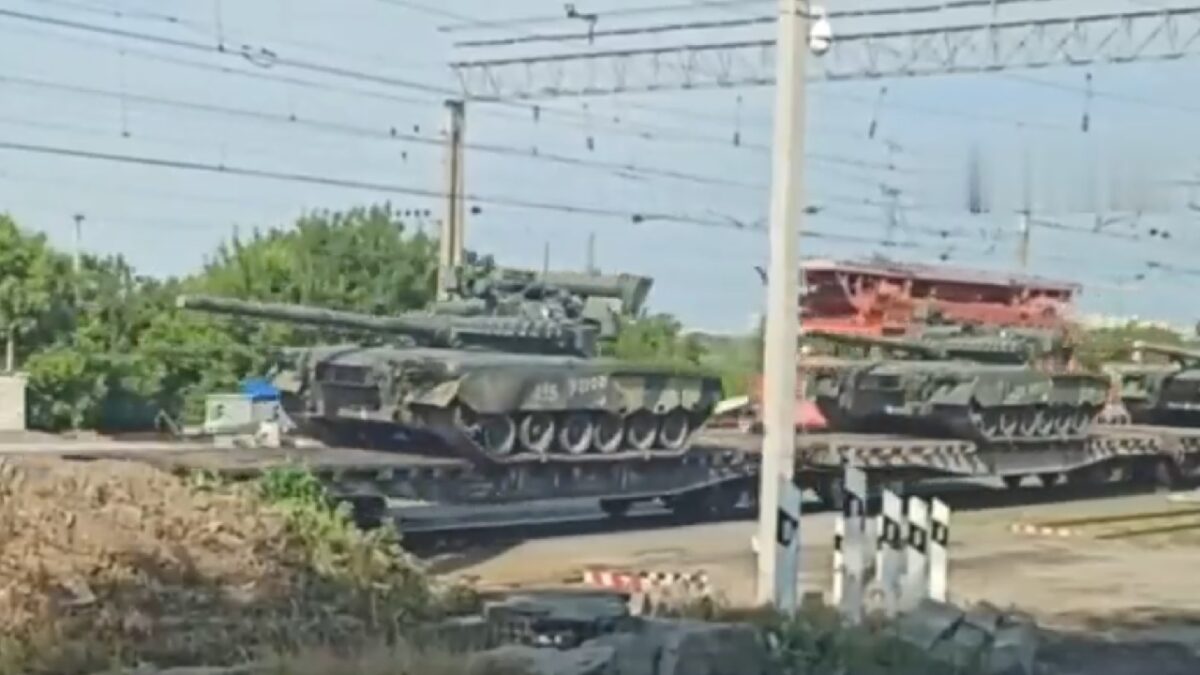Why Russia Continues to Target Ukraine’s Energy and Water Infrastructure: Kyiv experienced widespread power outages and a lack of access to water on Monday after Russia launched a fresh campaign of missile strikes on the Ukrainian capital city.

Video screenshot of a Russian T-72B3 tank on fire and a second decapitated tank by Ukraine’s 93rd Mechanized Brigade.
We should not be surprised. These actions follow a series of similar indiscriminate bombing campaigns launched on Kyiv and other major Ukrainian cities in recent weeks, revealing Russia’s intention to critically damage Ukrainian civilian infrastructure as the Kremlin continues efforts to take control of the Donbas, Zaporizhzhia, and Kherson.
This time, Russia used several dozen cruise missiles; an expensive and hugely destructive weapon that the Russian military has in short supply. Ukrainian authorities confirmed that 10 regions were targeted by the missiles and 18 targets were hit. Russian forces appeared to deliberately target Ukrainian energy facilities, a tactic that could be considered a war crime.
Marie Struthers, the director for Eastern Europe and Central Asia at Amnesty International, described Russia’s targeting of civilian infrastructure as an effort to “sow fear and despair” in Ukraine and “deprive civilians in Ukraine of heat, electricity and water as the cold grip of winter approaches.”
“Russia’s targeting of Ukrainian civilian infrastructure is unlawful. The morale of the civilian population is not a lawful target, and carrying out these attacks with the sole purpose of terrorizing civilians is a war crime,” Struthers also said.
The Ukrainian Ministry of Defense confirmed the latest strikes, revealing on Telegram that Russian forces “continued to launch strikes with high-precision long-range air and sea-based weapons against Ukrainian military and energy facilities.”
“The goals of the strikes were successful. All assigned objects were hit,” the statement continued.
What Russia Hopes to Achieve
While the arrival of hundreds of Iranian drones certainly helped Russia continue its military assault on Ukraine as hundreds of thousands of reservists were prepared for deployment in eastern and southern Ukraine, the Kremlin is still struggling to replace advanced weapons necessary to launch a renewed offensive in the country.
Missile and kamikaze drone strikes on Ukrainian residential buildings are by no means a new tactic for Russia – the illegal targeting of residential buildings in Ukraine has been well-documented throughout the invasion. The specific targeting of energy infrastructure, however, appears to be new and contradicts claims by Russian President Vladimir Putin that he does not intend to destroy Ukraine.
The strikes are doing quite the opposite, destroying Ukrainian cities and worsening the living conditions of civilians who remain in the country. Hanna Shelest, the director of security programs at Foreign Policy Council Ukrainian Prism, said that Russia also views this new campaign as a way of taking control of the country, not just causing damage.
“Energy was always quite a holy cow for the Russians, and they claim that by controlling energy they can control the country,” Shelest told PBS, adding that the Russian military now intends to destroy enough of Ukraine’s energy infrastructure that life becomes intolerable in Ukraine.
Shelest also suggested that the Kremlin may believe once life becomes so intolerable for Ukrainians who have not left the country, they may blame their own government.
So far, however, there is no evidence that Ukrainian civilians are growing more sympathetic to Russia’s intentions in Ukraine.
Is It Worth It?
Russia is gambling a lot by initiating and continuing these indiscriminate bombing campaigns, though may also have few other options.
As Illia Ponomarenko of the Kyiv Independent noted on Monday, the missiles used to strike Kyiv this week cost an extraordinary amount of money and may not have created the long-term problems required to make the strikes worthwhile.
“So, today Russians spent some 50 irreplaceable missiles (each costs several million dollars) so I couldn’t have electricity and water for several hours. That’s how stupid their war is,” Ponomarenko said.
While it’s possible that Russia chose to use the missiles in the expectation that Iranian-manufactured rockets are on their way, Russian forces must ensure every missile spent is worthwhile and much of the damage caused on Monday has not translated into permanent or long-term outages. That is true at least for the time being.

Russian tanks headed off to the battlefields of Ukraine. Image Credit: Creative Commons.

Video of Ukraine’s forces launching an attack. Image Credit: Twitter Screenshot.
Missile strikes like these could make sense as long as Russia ensures that they cause a significant amount of damage and that the problems caused by striking critical energy infrastructure take so long to fix that by the time it’s back up and running, Russia has won the war, ended the conflict with negotiations that favor them, or new missiles have been procured and are ready to be launched again.
Jack Buckby is a British author, counter-extremism researcher, and journalist based in New York. Reporting on the U.K., Europe, and the U.S., he works to analyze and understand left-wing and right-wing radicalization, and reports on Western governments’ approaches to the pressing issues of today. His books and research papers explore these themes and propose pragmatic solutions to our increasingly polarized soci

